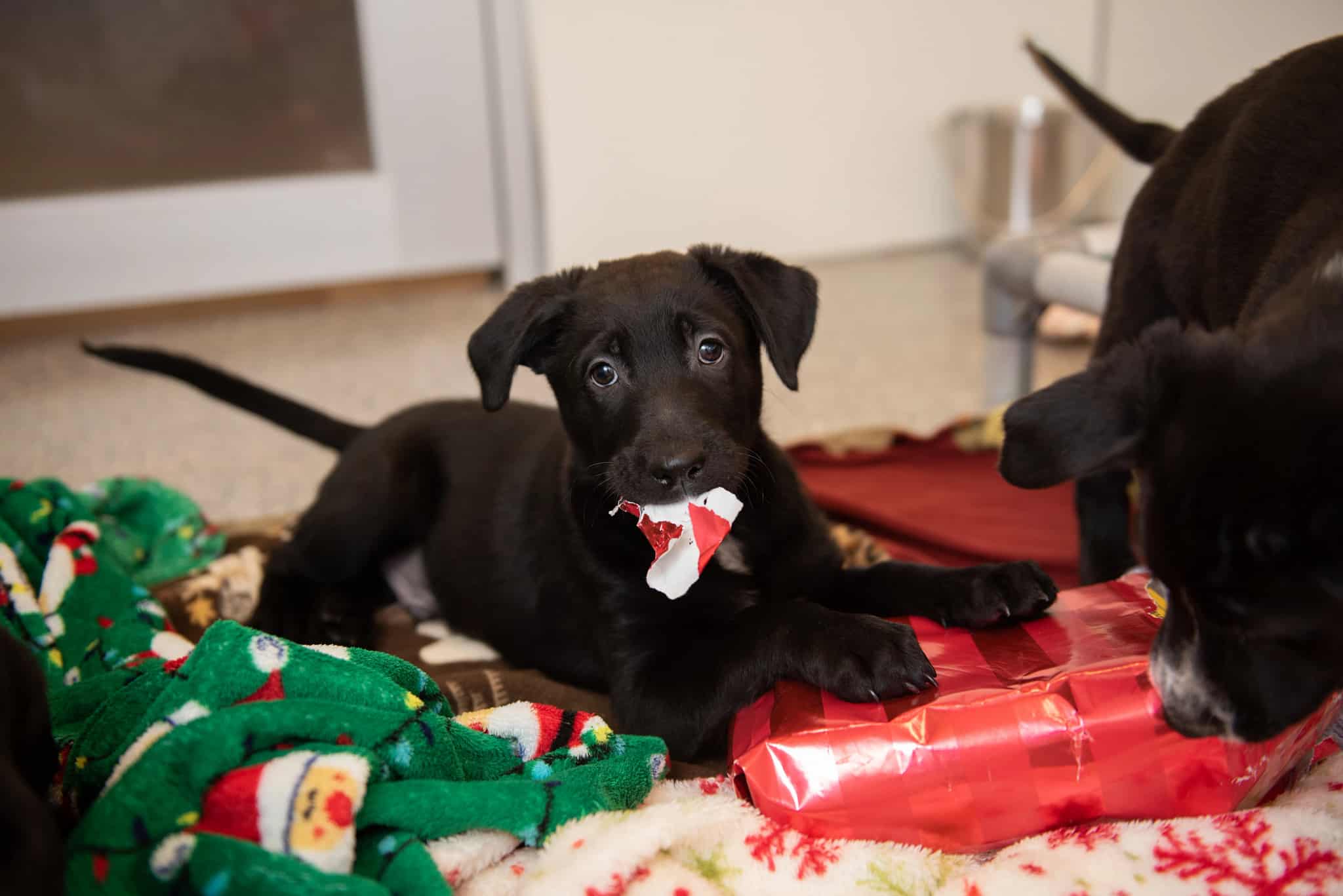9 Tips to Keep Your Pets Safe During the COVID-19 Holiday Season
Ensure happy holidays for all

COVID-19 cases continue to surge around the country, so this year’s holiday season may be quieter than usual. Gone are the guests, but there are still plenty of seasonal things that can be troublesome for your pets. Human holiday traditions such as food, decorations, and plants that may seem harmless can be dangerous and even life-threatening to dogs and cats. By following these nine holiday pet safety tips, you can ensure that the holidays are happy for all.
 “Our pets are naturally curious and love new things. The holidays provide a whole new world for them to explore that can lead to a potential illness or injury,” said Erin Katribe, veterinarian and medical director, Best Friends Animal Society. “Since many veterinary offices have limited hours and services during the COVID-19 crisis, it’s crucial to keep your pets as safe as possible, as a trip to the vet won’t be as easy as in previous years.”
“Our pets are naturally curious and love new things. The holidays provide a whole new world for them to explore that can lead to a potential illness or injury,” said Erin Katribe, veterinarian and medical director, Best Friends Animal Society. “Since many veterinary offices have limited hours and services during the COVID-19 crisis, it’s crucial to keep your pets as safe as possible, as a trip to the vet won’t be as easy as in previous years.”
9 Holiday Pet Safety Tips
As such, Best Friends Animal Society offers the following tips to keep your dogs and cats safe during this holiday season:
- Be aware that increased noise and lights can cause stress. If your pet seems agitated, turn down the music or consider placing your pet in a quiet, calm room with dim lighting.
- Curb the tendency to give your dog or cat human food. Any change in your pets’ diet may give them indigestion, diarrhea or worse. Foods that people should avoid giving their pets include chocolate, grapes, onions, poultry bones, eggnog, and fruitcake.
- Dispose of food trash in an outside receptable as soon as possible.
- Holiday plants such as lilies, holly, mistletoe, and poinsettias are known to be toxic to pets and should be kept out of reach.
- The water nourishing the Christmas tree also nourishes bacteria, so it can be extremely harmful to pets. Keep water covered with a thick skirt so pets can’t get into it.
- Tape electrical cords safely to the wall and make sure that all electrical connections, batteries, and outlets are concealed.
- Tinsel, ribbon, metal hooks, plastic, and glass can obstruct or perforate the intestine if ingested. Use alternatives such as paper and hang decorations out of your pet’s reach.
- Quickly dispose of wrapping paper, packages, and bows after opening presents and put children’s toys away after playtime to avoid accidental ingestion.
- Make sure your pets’ identification and microchip are up to date in case anyone inadvertently leaves the door open during your holiday celebration.
 In case of emergency
In case of emergency
Some symptoms that your pet has become ill and should be taken to a veterinarian quickly include prolonged vomiting (more than three times in a row), dry heaves, a distended abdomen, sudden weakness or inability to stand, respiratory distress, change in gum color, and/or seizures.
“Pet owners should make a plan now in case their pets have an emergency over the holidays,” Katribe said. “Start by researching what veterinary offices will be open in your surrounding area and keep a list of their phone numbers handy to call ahead if your pet shows any symptoms.”
For more information, visit www.bestfriends.org.
About Best Friends Animal Society
Best Friends Animal Society is a leading national animal welfare organization dedicated to ending the killing of dogs and cats in America’s shelters. In addition to running lifesaving programs in partnership with more than 3,100 animal welfare groups across the country, Best Friends has lifesaving centers in New York City, Los Angeles, Atlanta, and Salt Lake City, and operates the nation’s largest no-kill sanctuary for companion animals.
Founded in 1984, Best Friends is a pioneer in the no-kill movement and has helped reduce the number of animals killed in shelters nationwide from an estimated 17 million per year to around 625,000. That means there are still more than 1,700 dogs and cats killed every day in shelters, just because they don’t have safe places to call home.


